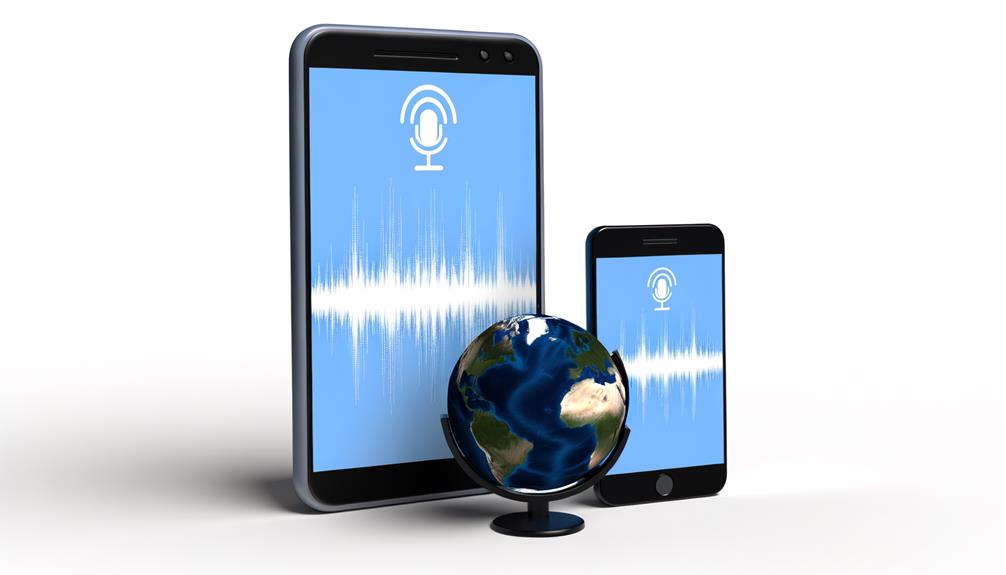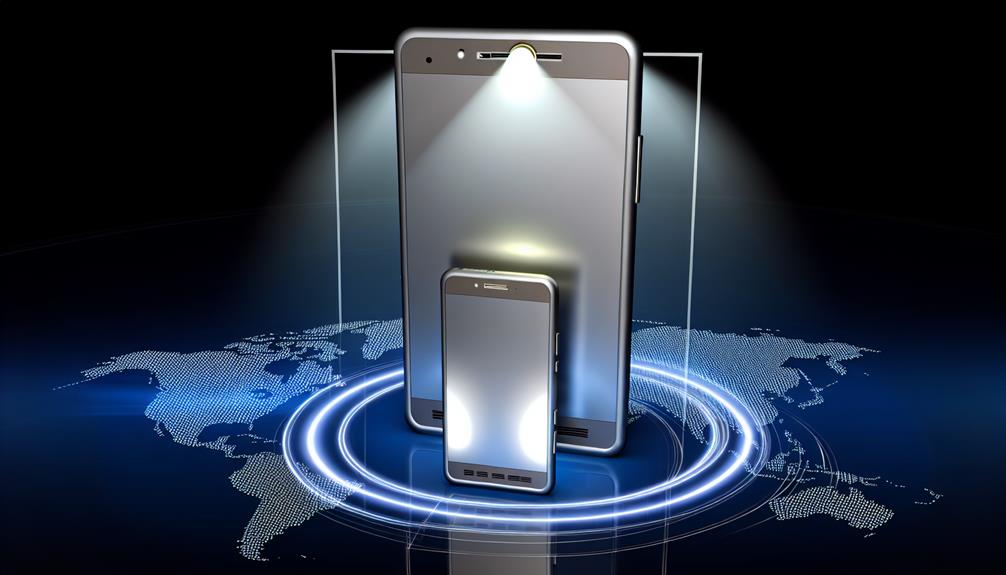Apple's Iphone Surpasses Samsung: Global Domination
The global smartphone market has witnessed a significant milestone with Apple’s iPhone surpassing its main rival, Samsung. Apple’s consistent dedication to innovation and quality has been pivotal in shaping this outcome.
However, it raises intriguing questions about the driving factors behind this shift in global dominance and how sustainable it is in the face of evolving technology and market dynamics.
This exploration will dissect the possible reasons for Apple’s leading position and what it may imply for the future of the smartphone industry.
Key Takeaways
- Apple overtook Samsung as the top smartphone globally in 2021, showcasing its market dominance.
- The iPhone’s revolutionary features and Apple’s ecosystem have contributed significantly to its global success.
- Despite Samsung’s continuous innovation, it struggles to match Apple’s services and software organization.
- Apple’s exploration into A.I. and machine learning in iPhones further enhances its competitive edge over Samsung.
Apple’s Journey and Success
Since its founding by Steve Jobs and Steve Wozniak in 1976, Apple has navigated a tumultuous journey to achieve unparalleled success, revolutionizing the technology industry and defining the concept of a smartphone with the introduction of the iPhone in 2007.
Before this landmark, Apple had already seen significant victories with the iMac and iPod. The success of the iMac, launched in 1998, revamped Apple’s image and brought immense financial gains. Similarly, the iPod, introduced in 2001, was a triumph that reshaped the music industry.
These successes laid a robust foundation for the company’s next groundbreaking innovation – the iPhone. Consequently, Apple’s strategic products, coupled with its distinctive marketing and design ethos, have cemented its place as a tech industry titan.
Pre-iPhone Mobile Industry
Prior to the advent of the iPhone, the landscape of the mobile industry was markedly different, with various tech giants such as Nokia, Motorola, BlackBerry, and Palm dominating the market.
Nokia’s dominance was particularly notable, as the Finnish company held a significant market share with its sturdy, user-friendly phones.
These big names, alongside others, contributed to mobile diversity, with each brand offering unique features and diverse operating systems. This era was characterized by competition and innovation, with companies striving to outdo each other in terms of design, functionality, and affordability.
However, it was a largely fragmented industry, lacking the uniformity and seamless user experience that the iPhone would eventually introduce. This historical context underscores the transformative influence that the iPhone had on the mobile industry.
Market Impact and Iphone Evolution
The evolution of the iPhone and its subsequent market impact marked a seismic shift in the mobile industry, signaling a new era of innovation, user experience, and global market dominance.
Combining unprecedented ease-of-use with high functionality, the iPhone redefined customer expectation for smartphones.
The iPhone market impact is not merely quantitative, but qualitative, altering the way consumers perceive and interact with technology. Moreover, iPhone sales growth has been monumental.
From 1.4 million units sold in 2007 to over 200 million in 2015, this exponential growth is testament to the iPhone’s market penetration.
As of today, nearly 1.5 billion active iPhone users exist globally. Apple’s dominance, spurred by the iPhone’s evolution, has reshaped the mobile industry’s landscape, influencing market trends and consumer behaviors.
Apple’s Dominance Vs Samsung Competition
Navigating the fiercely competitive smartphone market, Apple’s market dominance has been challenged significantly by its closest rival, Samsung, leading to an intriguing battle of innovation, strategy, and customer loyalty.
Apple’s brand, known for its superior quality and user-friendly interface, has maintained a strong foothold in the market. Despite Samsung’s innovations, particularly in areas of screen technology and device versatility, it has been unable to eclipse Apple’s popularity.
This can be attributed to Apple’s adept strategies in product differentiation and a loyal customer base that values the brand’s consistent delivery of high-quality devices.
However, Samsung’s relentless pursuit of innovative technologies continues to keep the competition dynamic and unpredictable, ensuring the global smartphone market remains a fascinating arena of business strategy and technological advancement.
A.I. Integration in Iphones

Delving into the realm of artificial intelligence, Apple’s iPhones are progressively integrating A.I. capabilities, fostering a transformative shift in user interactions and device functionalities. With A.I. advancements, the user experience is greatly enhanced, paving the way for more personalized features and efficient voice assistants.
| A.I. Features in iPhone | Impact | Future Prospects |
|---|---|---|
| Voice Assistants | Improved accessibility | More naturalistic interaction |
| Personalized Recommendations | Enhanced user experience | Greater customization |
| Facial Recognition | Increased security | Advanced biometric capabilities |
| Image Recognition | Streamlined photo management | More nuanced categorization |
| Predictive Text | Efficient typing | Contextual suggestions |
These developments underscore how Apple is leveraging A.I. to drive its competitive edge, enriching the iPhone’s functionality while maintaining a user-centric approach. The integration of A.I. is undeniably shaping the future of iPhone usage.
Frequently Asked Questions
How Has Apple’s Retail Strategy Contributed to the Iphone’s Global Success?
Apple’s retail strategy has significantly contributed to iPhone’s global success. The innovative store design influence provides a unique, immersive customer experience, enhancing product interaction.
Moreover, Apple’s dramatic product unveiling impact, characterized by high-profile launch events, generates substantial consumer interest and media coverage globally. This strategy, coupled with the captivating in-store experience, has effectively cemented Apple’s position in the market, driving the unparalleled success of the iPhone worldwide.
What Were the Environmental Impacts of the Mobile Industry’s Shift From Various Competitors to the Iphone’s Dominance?
The seismic shift in consumer behavior towards iPhone dominance has significantly impacted the environment, chiefly through the increase in electronic waste (E-Waste).
As millions discarded older mobile devices to adopt iPhones, E-Waste management became a pressing concern.
While technological advancements brought about by the iPhone revolutionized communication, it also underscored the urgent need to develop sustainable practices for electronic waste disposal and recycling.
How Did the Iphone’s Success Affect the Job Market, Particularly in the Fields of App Development and Technology?
The iPhone’s success significantly impacted the job market, particularly in app development and technology sectors. It sparked an unprecedented surge in job creation, fostering a vibrant app economy.
Developers worldwide capitalized on the App Store platform, creating diverse applications, thereby expanding economic opportunities. Furthermore, the technological advancements propelled by iPhone necessitated skilled professionals, bolstering job growth in technology-driven roles.
Hence, iPhone’s dominance contributed to economic impact and job market transformation.
Beyond Samsung, Who Are the Other Significant Competitors for Apple in the Global Smartphone Market?
Beyond Samsung, significant competitors for Apple in the global smartphone market include Chinese tech giants Huawei and Xiaomi. These companies have significant influence, especially in the Chinese market, owing to their innovative technology adoption.
A recent report revealed that Xiaomi surpassed Apple in global smartphone sales in Q2 2021, highlighting the growing competition in this industry.
Other notable competitors include OPPO and Vivo, emphasizing the increasing diversity and competitiveness of the global smartphone market.
How Has the Integration of A.I. in Iphones Influenced the Development of Other Apple Products Like the Ipad and Mac?
The integration of A.I. in iPhones has significantly influenced the development of other Apple products like the iPad and Mac. A.I advancements have enabled features like Siri and facial recognition, enhancing the user experience across all devices.
It has also led to the development of more intuitive interfaces and personalized features. This technology integration has not only streamlined Apple’s product ecosystem but also set new standards in the tech industry.
Conclusion
In conclusion, Apple’s ascendance in the global smartphone market, outpacing its primary rival Samsung, is the result of relentless innovation and a commitment to quality. Its groundbreaking introduction of the iPhone and the App Store redefined the mobile industry.
As Apple continues to incorporate advanced technology such as A.I. and machine learning, it further solidifies its dominance. The company’s success underscores the potent combination of visionary innovation and uncompromising dedication to quality.
Share this content:













Post Comment